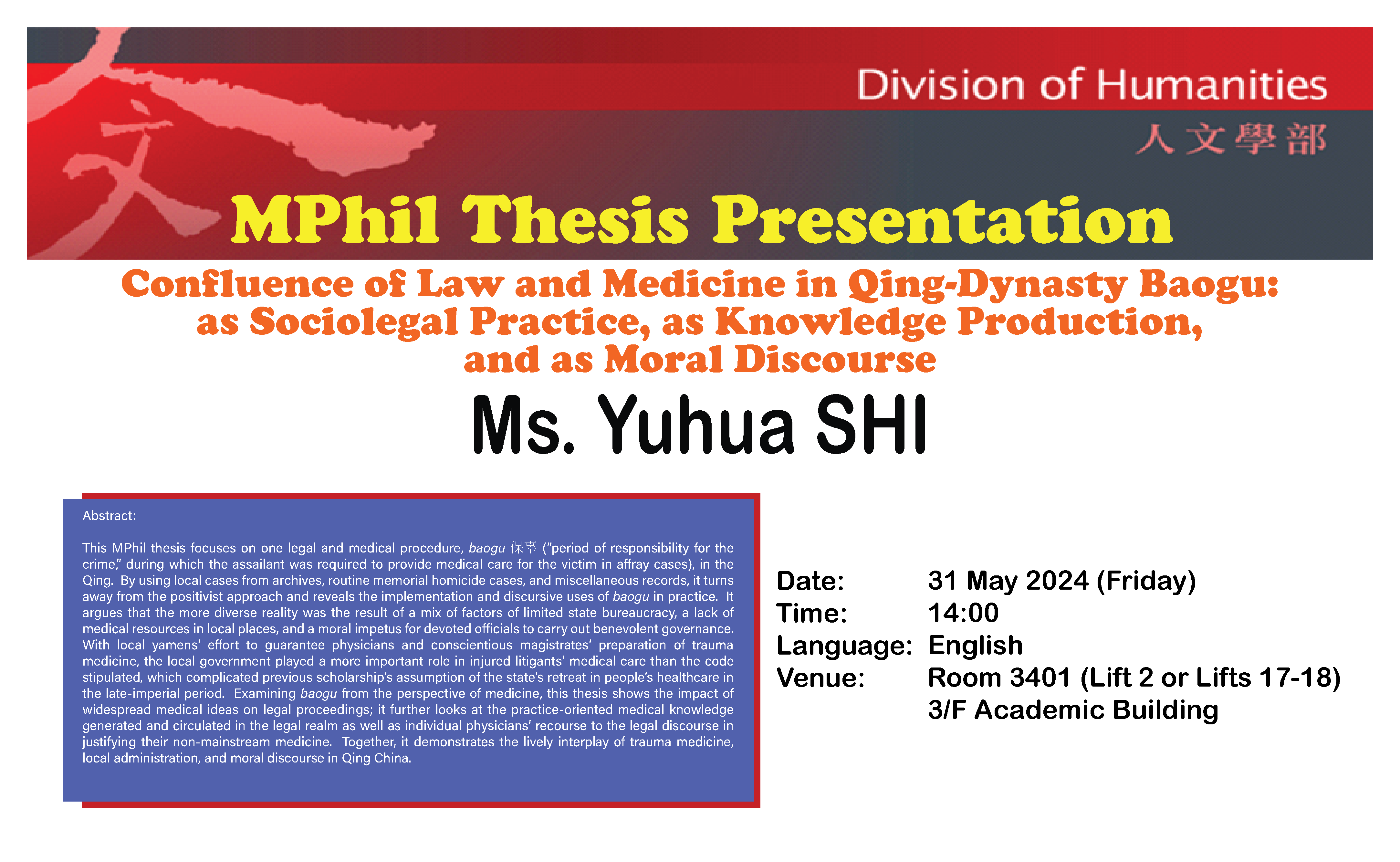This MPhil thesis focuses on one legal and medical procedure, baogu 保辜 (“period of responsibility for the crime,” during which the assailant was required to provide medical care for the victim in affray cases), in the Qing. By using local cases from archives, routine memorial homicide cases, and miscellaneous records, it turns away from the positivist approach and reveals the implementation and discursive uses of baogu in practice. It argues that the more diverse reality was the result of a mix of factors of limited state bureaucracy, a lack of medical resources in local places, and a moral impetus for devoted officials to carry out benevolent governance. With local yamens’ effort to guarantee physicians and conscientious magistrates’ preparation of trauma medicine, the local government played a more important role in injured litigants’ medical care than the code stipulated, which complicated previous scholarship’s assumption of the state’s retreat in people’s healthcare in the late-imperial period. Examining baogu from the perspective of medicine, this thesis shows the impact of widespread medical ideas on legal proceedings; it further looks at the practice-oriented medical knowledge generated and circulated in the legal realm as well as individual physicians’ recourse to the legal discourse in justifying their non-mainstream medicine. Together, it demonstrates the lively interplay of trauma medicine, local administration, and moral discourse in Qing China.
More about HKUST
